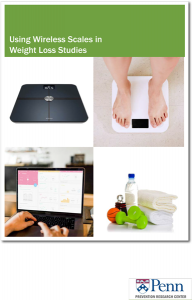Adolescents and young adults with food allergies are at increased risk of adverse events, including death from anaphylaxis. Epinephrine is the cornerstone of emergency response, yet few individuals with serious food allergies consistently carry their emergency medication. Behavioral economics offers promising, previously untapped opportunities for behavior change in this arena.
Carolyn C. Cannuscio, ScD, and David Grande, MD, were part of a team of researchers who tested the effectiveness of modest financial incentives in promoting the carrying of epinephrine and to evaluate the acceptability of text messaging for delivering reminders and key health messages to young adults with food allergies.
The study raises important questions for future work; first, because epinephrine carriage rates were depressingly low, underscoring the urgency for further behavioral research to understand and improve food allergy management practices. And second, text messaging alone might be a highly feasible, relatively low-cost intervention model. Advocacy groups and device manufacturers—who have a vested interest in encouraging adherence—could be potential allies in implementing and testing future interventions such as the one evaluated in the present study.
In conclusion, this study’s findings are a promising step for young adults with food allergies, suggesting opportunities for minimizing morbidity and mortality in this high-risk group.
Read the article here.
Cannuscio C, Dupuis R, Graves A, Seymour J, Kounaves S, Strupp E, Leri D, Frasso R, Grande D, Meisel Z. A behavioral economics intervention to encourage epinephrine-carrying among food-allergic adults: a randomized controlled trial. Annals of Allergy, Asthma & Immunology. Sept 2015, 115:3, 234-240.

